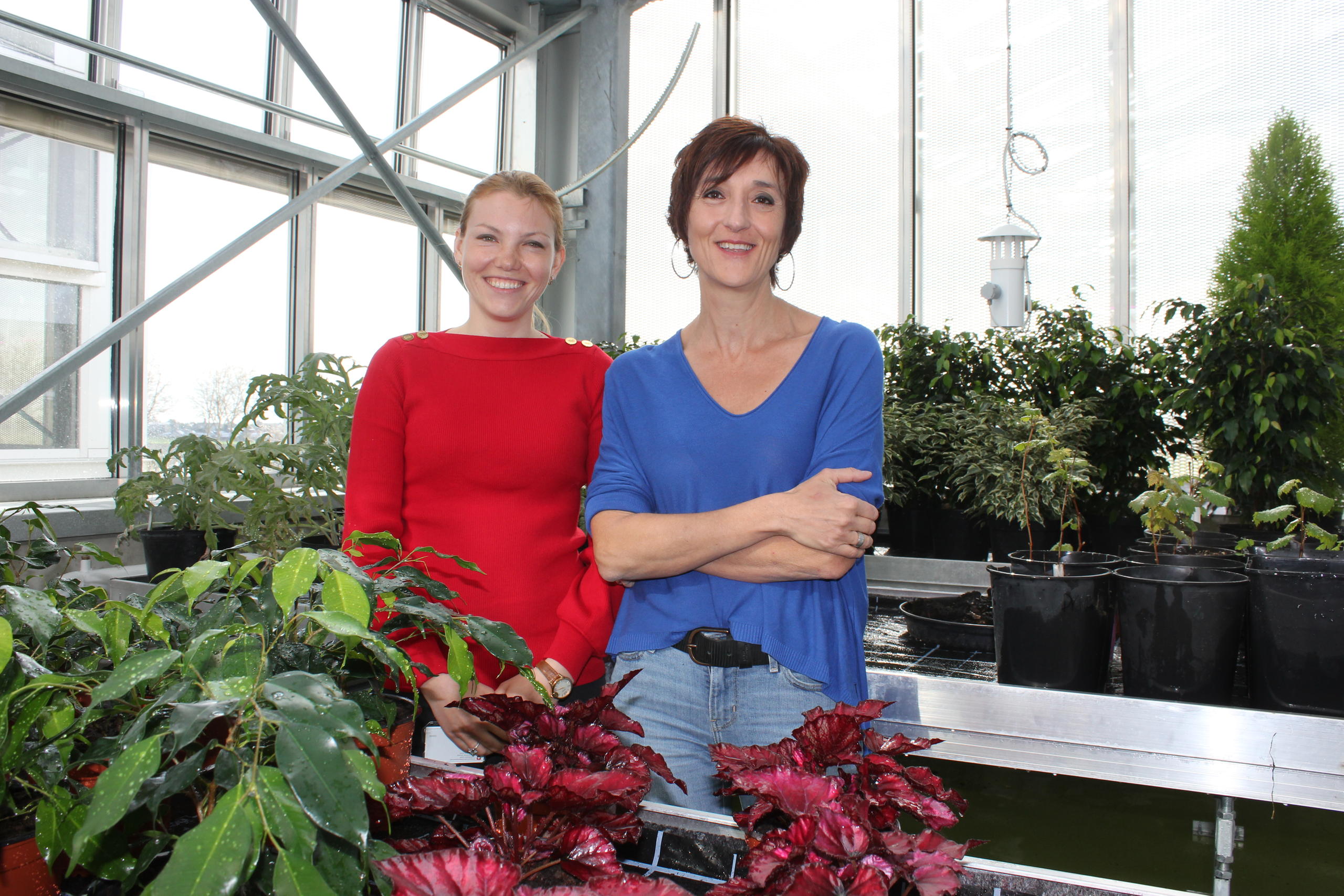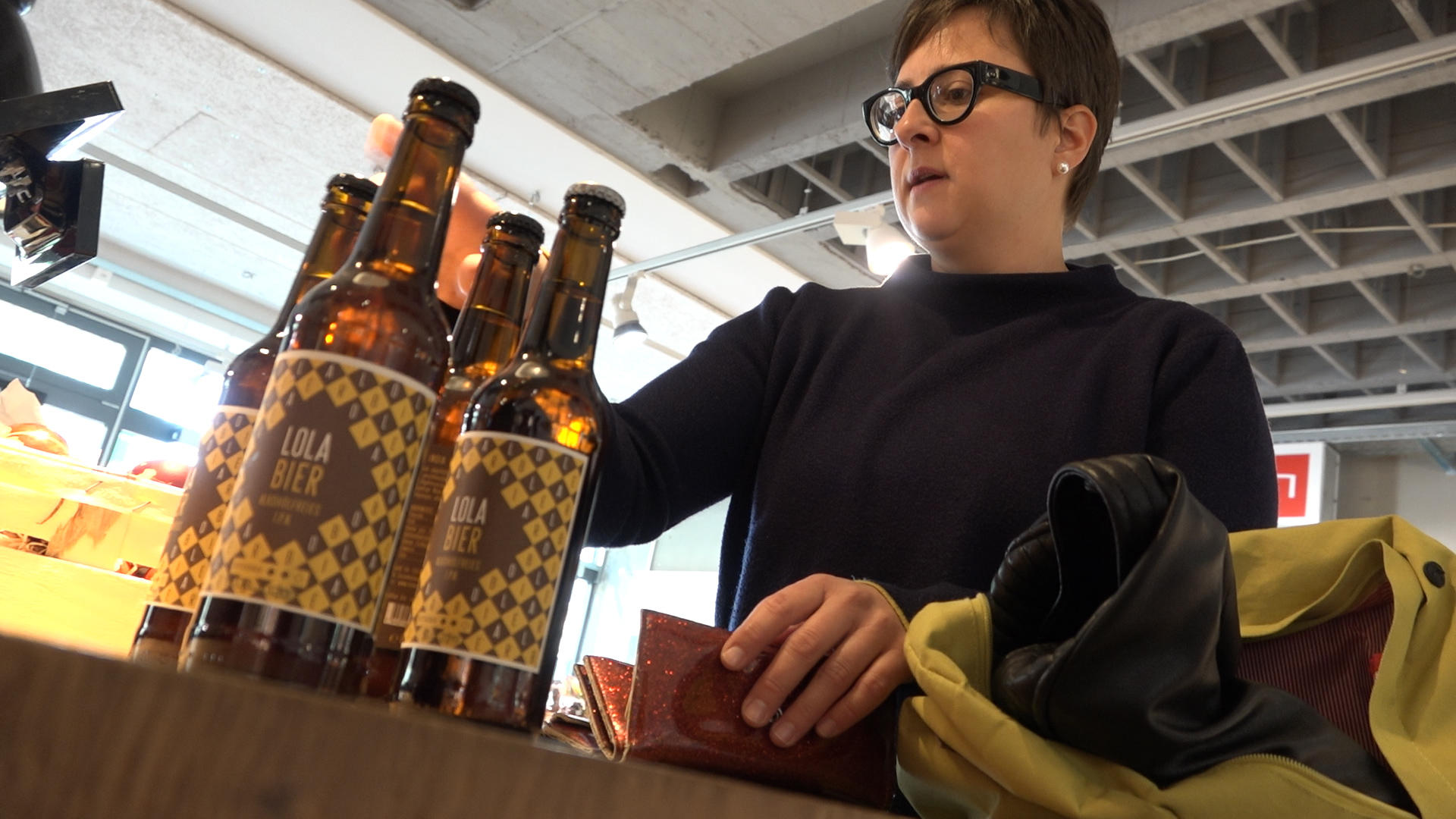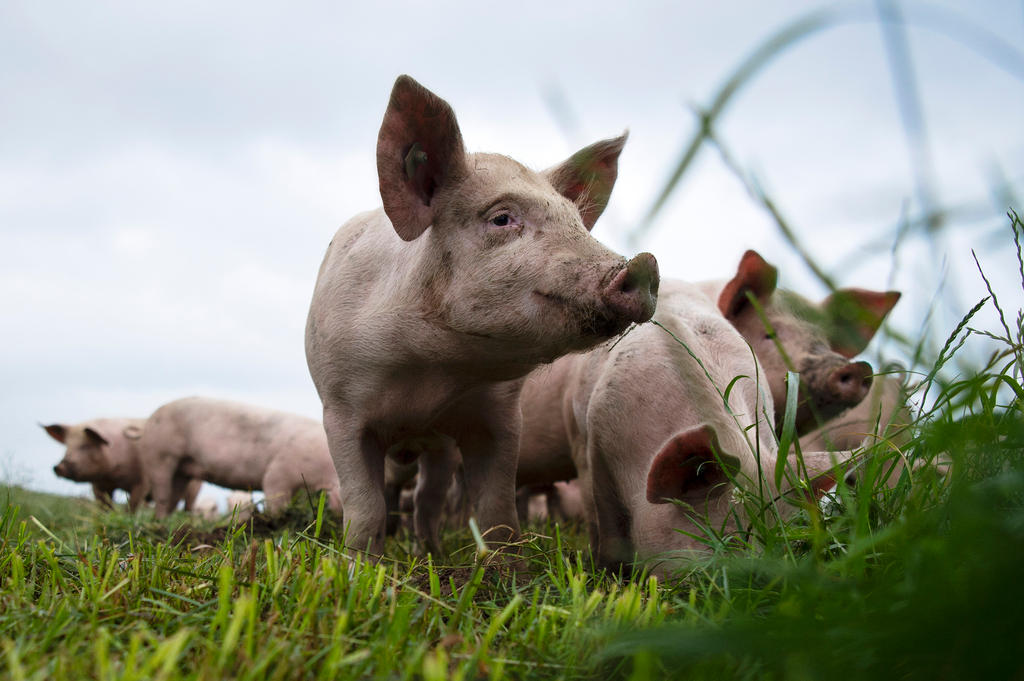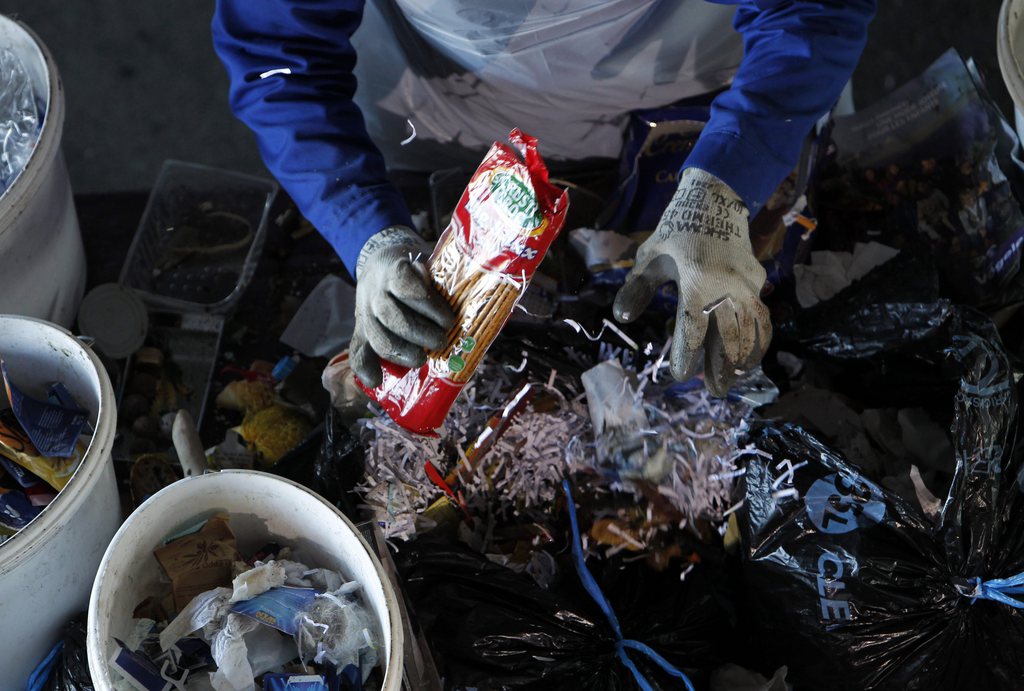Swiss start-up leads the fight against food waste

A Swiss agrotech start-up has declared war on food waste with the development of a natural product that fights the pathogenic fungi that ravage freshly harvested crops of fruit and vegetables.
Patented internationally, AgroShelf+ is a biological composition capable of stemming the development of several species of pathogenic fungi and thus prolonging the shelf life of crops such as strawberries, bananas or potatoes after harvest. It has been developed by AgroSustainExternal link, a start-up based in canton Vaud in western Switzerland and founded by Olga Dubey, a 28-year-old former researcher.
“Mould is responsible for a third of all losses after the harvest. The problem is particularly sharp in developing countries where the storage and transport of food is not always optimal,” she says.
Pathogenic fungi are the leading cause of disease in plants, generating global annual agricultural losses estimated at more than CHF200 billion ($196 billion). The scourge does not only have an impact on farmers; the dreaded grey rot often appears after harvest, leading to considerable waste and loss of earnings (CHF60 billion) for wholesalers and fruit and vegetable distributors.
Eradicating pesticides
Dubey made her discovery of a molecule rich in anti-fungal properties while working on her doctorate at the University of Lausanne.
“This molecule present in the natural state in plants has the advantage of being able to be extracted thanks to an organic synthesis process,” she explains. “This brings an effective, economic and biological alternative to chemical solutions which are the only solutions available to date.”
Treating agricultural products with pesticides after they have been harvested is banned in Switzerland. However, under pressure from the United States, numerous other countries allow the practice. Today, pesticides are coming in for increased criticism due to the harm they can cause to the health of people, animals and the environment.
“We’re witnessing a global movement towards a healthier and more ecological lifestyle. With enough experience, knowledge and adapted technology, I am convinced that all the answers to our problems can be found in nature,” Dubey says.
Start me up
Dubey has held this conviction from a young age when she spent a large part of her spare time roaming her grandparents’ vegetable garden in Russia.
“From when I was very small, I was conscious of the challenges posed by food storage. It has always been engraved into a corner of my mind and it’s probably what led me to this field of study,” she says.
After completing a course in molecular biology, Dubey – then just 26 – created AgroSustain with her husband Sylvain Dubey, a biologist and head of technology, and sales director Jean-Pascal Aribot.
“I love research, but I’ve also always nurtured the ambition to do something that could be useful to people. So, after my discovery I decided to leave the laboratory to lead the development of this new product and create my own business,” she explains.
Strong support
AgroSustain, which today employs nine people, raised CHF1 million in an initial funding round last year. A second round is planned soon to finance bringing the product to market in 2021. The start-up has also benefited from different loans and donations from organisations active in supporting innovation.
Dubey’s discovery has generated strong interest from various players in the sector. Partnerships have already been established – in the greatest secrecy – with important distributors in Switzerland and abroad and proposals for acquisition have been steadily coming in over the past year.
“AgroSustain is not for sale. However, we are open to eventual collaborations which will enable us to disseminate our products more widely,” says Dubey, who was recently featured in Forbes magazine’s annual listing of the 30 best entrepreneurs under the age of 30External link in the Science and Health category.
Public authorities are also excited about the potential of AgroSustain. The start-up has signed a partnership agreement with Agroscope ChanginsExternal link, one of seven government centres of competence specialised in agronomic research.

“It’s the first time such a collaboration has been established,” says Katia Gindro, head of the mycology and biotechnology group at Changins. “The integration is almost total because we share the same premises and we force ourselves to mutualise to the maximum our knowledge.”
Action plan
For its part, AgroSustain welcomes the access to expertise in agronomic research and to the best infrastructure – laboratories, greenhouses and agricultural fields – which enable it to conduct real-life tests.
Meanwhile, government experts see an opportunity to develop contacts with the economic community active in the development of innovative agrotechnological products. The collaboration also gels perfectly with the government’s action plan that aims to reduce the risks linked to the use of phytosanitary products.
“We must stop the use of certain synthetic pesticides and fungicides in the future,” Gindro says. “This is the case notably with Travacid [which is] used for limiting the development of fungi whose grey rot infects cuttings and grafts on vines. In this sense, the work being done by AgroSustain is very important and could have applications in other agricultural sectors.”
Above-ground salad cultures (Combagroup), solar-powered robots that remove weeds from fields (Ecorobotix), tools capable of measuring the environmental impact of food (Beelong) or drones specialised in scanning agricultural exploitations (Gamaya): Switzerland has several important start-ups active in the development of new agricultural and agro-food techniques.
These green shoots are developing around the federal technology institutes (ETH Zurich and EPFL), the Nestlé research and development centre and public agronomic research centres. However, unlike Health Valley (medical technologies), this ecosystem is still in an embryonic stage. Agriculture is one of the last sectors of the economy to take up new technologies.
“These start-ups are active in very different fields, so there is not any competition between us. On the contrary, the people active in this community are very loyal and do not hesitate to help each other when needed,” says Olga Dubey, founder of AgroSustain.

In compliance with the JTI standards
More: SWI swissinfo.ch certified by the Journalism Trust Initiative













You can find an overview of ongoing debates with our journalists here . Please join us!
If you want to start a conversation about a topic raised in this article or want to report factual errors, email us at english@swissinfo.ch.